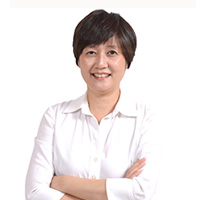[Kim Hoo-ran] Lee Hee-ho’s legacy as activist, first lady offers lesson for all
By Kim Hoo-ranPublished : June 12, 2019 - 17:03
 When former first lady Lee Hee-ho, who passed away Monday night aged 96, and Kim Dae-jung tied the knot in 1962, they entered into a lifelong partnership that would endure numerous hardships and tribulations.
When former first lady Lee Hee-ho, who passed away Monday night aged 96, and Kim Dae-jung tied the knot in 1962, they entered into a lifelong partnership that would endure numerous hardships and tribulations.
By all accounts, most people on Lee’s side opposed the marriage. She was a well-educated woman who had studied sociology in the US and was playing an active role in the country’s nascent women’s rights movement. Her colleagues and family thought that marriage to Kim, an opposition politician and widower with two sons, would mean the end of her career and an end to her meaningful contribution to society.
Lee thought differently. In a memoir, she recalls feeling she needed to help Kim. And help she did, throughout his tumultuous political career that sometimes saw his life in direct danger.
Nine days after the wedding, Kim was taken away by authorities for alleged ties to anti-revolutionary forces. Throughout the Park Chung-hee years, Kim, as a dissident politician, faced political oppression. Following the presidential election in 1971 in which Kim lost to Park by a narrow margin, Kim was involved in a mysterious car accident that left him with a permanent injury to his leg.
In 1973, while campaigning in Japan against the Yushin regime, under which Park secured himself near-lifetime rule, Kim was kidnapped by the Korean Central Intelligence Agency and released five days later in Korea. It has been said that US Ambassador to Korea Philip Habib interceded for his release.
In 1976, Kim was sentenced to five years in prison for his involvement in an anti-government declaration, a sentence that was reduced to house arrest in 1978. His political rights were restored following Park’s assassination in 1979, but troubles did not end for Kim.
In May 1980, Kim was arrested and sentenced to death on charges of sedition and conspiracy following Chun Doo-hwan’s rise to power by a military coup. With the intervention of the US, the death sentence was commuted to 20 years in prison. In 1982, Kim announced his retirement from politics and was allowed to go into exile in the US, where he continued to criticize Chun’s authoritarian regime. In 1985, Kim returned to Korea, only to be placed under house arrest once again.
Through all of this, Lee was not only a wife but a political comrade as well, campaigning internationally for Kim’s release in 1976 and supporting his efforts during his years in prison, under house arrest and in exile.
Kim was elected president in 1997 following additional losses in 1987 and 1992. During the Kim Dae-jung administration, many strides were made in women’s rights. The first ministry dedicated to women’s issues was established and many women were appointed to Blue House positions. Legislation aimed at protecting mothers and children was enacted during the period. The Kim administration also saw the appointment of four women ministers as well as the first-ever woman ambassador.
It would be hard to argue that Lee, whose marriage to Kim was one of equals -- symbolized by her name plate and her husband’s name plate side by side at the gate to their house -- did not have a say in the advancement of women in the government.
As first lady, Lee continued her crusade for the cause of women and children, delivering a keynote speech at the UN Special Session on Children in 2002 and founding organizations for women and impoverished children.
In 2000, Kim made history with the first-ever summit with North Korean leader Kim Jong-il in Pyongyang. By his side was Lee, who would return to Pyongyang in 2011 to pay condolences following Kim Jong-il’s death, then becoming the first South Korean to meet North Korea’s new leader Kim Jong-un, who succeeded his father. In 2009, a high-ranking North Korean delegation had visited Seoul to pay respects at Kim Dae-jung’s wake.
Lee’s efforts for inter-Korean reconciliation continued even after the death of her husband. In August 2015, at a time of heightened tensions between South and North Korea, she visited Pyongyang with some 15,000 hand-knitted mittens and caps for North Korean children.
Throughout her life, Lee demonstrated the spirit of service and reconciliation. In her last words, she thanked the people for the love they had shown her and her husband. She also wished for the people to lead a happy life in love and harmony, saying she would pray for the Korean people and peaceful unification in heaven.
Politicians of all stripes and colors are coming together to pay last respects to the fiercely strong woman who lived through the tumultuous periods of Korean history -- Japanese colonization, the Korean War and the struggle for democracy -- as an activist, a dissident’s wife and his political comrade.
Perhaps, in respecting her wishes, politicians can find it in themselves to take time out from hurling vitriolic rhetoric and reflect on what it is they are working for.
Taking a break from politics as usual, they might reflect on Lee’s legacy of advocacy for human rights and reconciliation and, in it, find a guiding compass that we seem so often to lack these days.
Kim Hoo-ran is the general news editor at The Korea Herald. She can be reached at khooran@heraldcorp.com. -- Ed.


















